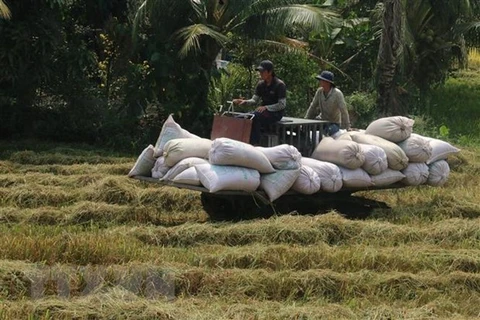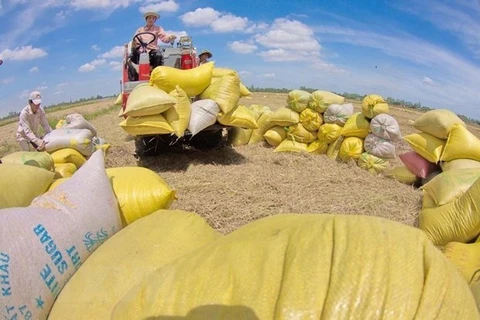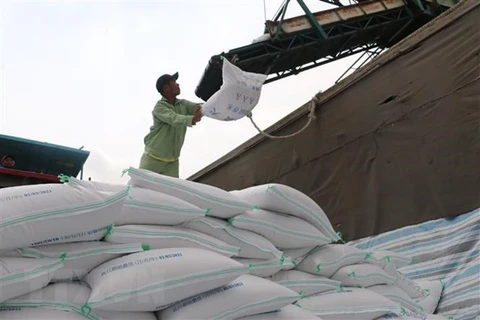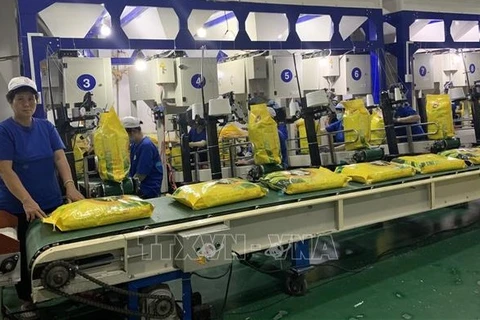Hanoi (VNA) - A workshop was held in the Mekong Delta city of Can Tho on June 22 to discuss ways to promote links and share experience to raise the value of Vietnamese rice in the international market.
The event gathered representatives from the Ministry of Agriculture and Rural Development, the Mekong Delta Rice Research Institute, enterprises operating in processing and rice exports, and market experts and researchers.
During the event, participants discussed and analysed bottlenecks, and proposed solutions to remove difficulties facing Vietnam's rice industry in its path towards sustainable development.
Vietnam is known as a powerhouse in rice exports with an annual average export output of about 6.3 million tonnes, accounting for about 15 percent of total global rice exports. Vietnamese rice has been shipped to over 150 countries and territories worldwide.
However, the country still meets obstacles in exporting rice to high-end markets where food protectionism and inflation are on the rise.
Do Ha Nam, Vice Chairman of the Vietnam Food Association, pointed out logistics difficulties facing rice exporters in the Mekong Delta region.
Participants also mentioned solutions and introduced technologies to ensure the quality of rice after harvesting and processing.
While proposing solutions to increase logistics efficiency in rice exports, Do Thu Huong, Deputy Director of Marketing, Saigon Newport Corporation, stressed the need to improve transport infrastructure such as highways: Trung Luong - My Thuan - Can Tho; Ben Luc - Ho Chi Minh City - Long Thanh; and resolving bottlenecks in waterways and container ports in the Mekong Delta region.
It is also necessary to build effective policies to attract investors to develop logistics supply chains, and create favourable conditions for investors to have land funds for planning regional logistics centres in the Mekong Delta, she said.
Market analyst Pham Quang Dieu said that banking, shipping, logistics and seaport partners should accompany the rice industry.
Partners with understanding of the rice industry can help the sector get the best opportunities from the market, he added./.
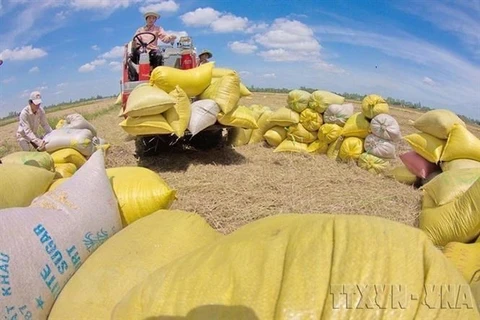
Can Tho company to export 15,000 tonnes of rice to RoK
Trung An Hi-tech Farming JSC in the Mekong Delta city of Can Tho has won a bid for 15,000 tonnes of rice from the Republic of Korea, CEO Pham Thai Binh announced on November 17.

